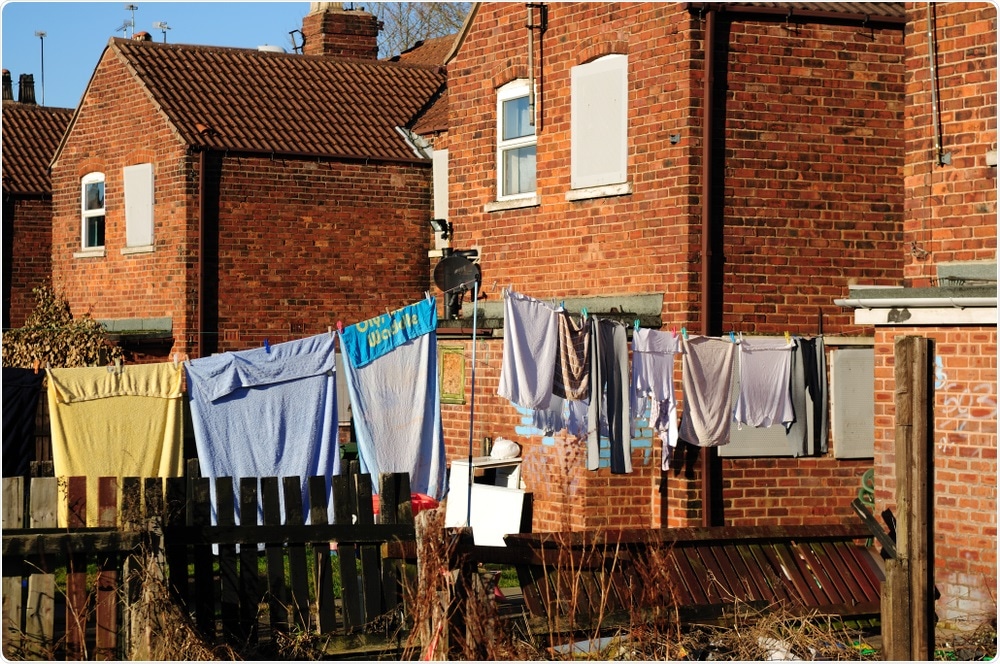Most individuals develop a strong immune response to severe acute respiratory syndrome coronavirus 2 (SARS-CoV-2) infection. The initial infection creates immune memory that may prevent reinfection with the same virus.
 Study: SARS-CoV-2 reinfection associates with unstable housing and occurs in the presence of antibodies. Image Credit: Ian Francis / Shutterstock.com
Study: SARS-CoV-2 reinfection associates with unstable housing and occurs in the presence of antibodies. Image Credit: Ian Francis / Shutterstock.com
About the study
In a recent article published in the journal Clinical Infectious Diseases, researchers examine the impact of demographic factors and antibody responses following SARS-CoV-2 reinfection. In this retrospective cohort study, the researchers identified patients with SARS-CoV-2 infection and at least one repeat reverse transcription-polymerase chain reaction (RT-PCR) result at least 90 days or more after the initial positive test and before January 21, 2021.
A total of 75 individuals with a repeat positive test were considered to have reinfection and 1,594 individuals with only negative tests were deemed as convalescents. Coronavirus disease 2019 (COVID-19) severity, demographics, and treatment histories were obtained from the Boston Medical Center electronic medical record.
Humoral responses were analyzed with the help of SARS-CoV-2-specific enzyme-linked immunosorbent assays (ELISAs) and pseudovirus neutralization in a subset of 16 reinfections and 32 convalescent samples. The researchers identified associations using univariate, multivariate, and time to event analyses.
Unstable housing influences reinfection risk
Reinfected individuals underwent more frequent testing at shorter intervals than convalescents. The results showed that unstable housing was associated with an over two-fold greater chance of reinfection.
Pre-existing disease conditions and COVID-19 severity after the first initial infection were not found to be associated with reinfection. In both groups, SARS-CoV-2 immunoglobulin G (IgG) levels and pseudovirus neutralization did not differ during the early weeks after primary infection and at any point on or after 90 days. The early and late humoral responses were significantly higher in the convalescent group, but not in the reinfection group.
SARS-CoV-2 reinfection is strongly associated with socio-environmental factors
The current study was designed to identify factors associated with SARS-CoV-2 reinfection. It compared disease characteristics, demographics, and humoral responses among individuals presumed to have SARS-CoV-2 reinfection.
The findings show that reinfection was associated with unstable housing, and not with any other baseline demographic or comorbidity. Moreover, antibody responses were not substantially different in a subset of people with reinfection.
It was also found that individuals with reinfection did not have significantly lower antibodies. Antibody levels and neutralization capacity were similar during the early weeks after SARS-CoV-2 infection, which suggests that individuals in the reinfection group did not have any pre-existing immune deficit that prevented the early immune response.
“Reinfection associates with unstable housing, which is likely a marker for virus exposure, and reinfection occurs in the presence of SARS-CoV-2 antibodies.”
The convalescent group demonstrated a significant increase in levels of antibodies and neutralization in samples collected 90 days or beyond the first positive test, while the reinfection group did not. This is surprising since the late plasma sample from the reinfection group was gathered after the second positive RT-PCR test, and reinfection should have strengthened pre-existing immune response as per previous observations.
The absence of higher antibody levels and greater neutralization responses in the late plasma compared to the early plasma may indicate that individuals with reinfection have a lower peak and/or faster antibody decay over time. However, the data obtained was from the evaluation of a small number of individuals at only two time points.
Taken together, these observations indicate that SARS-CoV-2 reinfection is associated with socio-environmental factors, rather than preexisting health conditions or immunologic deficits.
“More intensive longitudinal examination of the immune responses from a larger number of individuals will be required to understand the frequency of reinfection in relation to changes in immunity along with virus exposure”